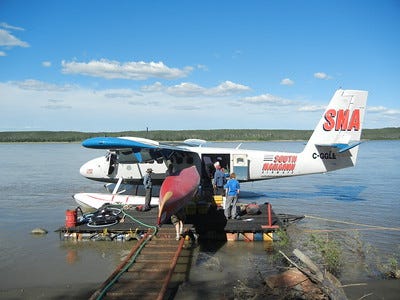Urgent intensity (Debugging work in a remote world, part 6)
This is the sixth and final part of a series on debugging work in a remote world. Make sure you are subscribed to get new posts as they’re published:
In part one, I shared there are several ingredients we must intentionally mix together to create the right conditions for effective and fulfilling long-term success with distributed teams and remote workers: trust, connection, and a sense of urgent intensity.
I believe that a missing sense of urgent intensity leads to reduced or inconsistent productivity that causes executives to mandate returning to the office because they don’t know what else to do. Teams are much more effective if they can operate with appropriate levels of urgent intensity regardless of geographic location. You don’t want this intensity all the time - that is unsustainable. But you need it some of the time, even if you have to manufacture it.
I’m sure you know the feeling of scrambling to close things out before going away on vacation. In 2012, my dad and I spent 10 days canoeing the Nahanni River in northern Canada. No laptop, no phone, and no contact except a satellite phone for emergencies. My work days leading up to that trip required an intense focus to ensure everything was decided or delegated before I went off the grid for two weeks.
I know a team that sets a goal to finish their planned work by a deadline and when they hit it, the whole team gets a day off. Because no one wants to let down everyone else, there’s a vibrant sense of urgency in hitting the deadline. People lean in a bit and get it done.
Another team was going to be putting things on screen during a live event. Being ready for that was an immovable deadline and they still talked about the intensity of that experience years later.
If you’ve ever had to troubleshoot a production outage or a security breach, I’m willing to bet you have a strong bond with the colleagues who fought those fires with you.
There’s a phenomenon known as crisis bonding in which strangers develop intense bonds in the face of unplanned crises. Obviously we don’t want dangerous crises at work but I’m convinced that we experience a micro version of it when we have these small crises at our jobs, and they cause us to rally together and achieve a goal under pressure.
When everyone is working from home, it’s challenging to mimic the level of urgent intensity that comes from working shoulder-to-shoulder on time-sensitive projects. Things slip to the next day or the next week. Simple decisions take a long time because we have to find a common 30 minute slot on everyone’s calendars. If you find yourself getting stuck in this trap, take action. For example, I find that having working meetings with someone sharing their screen is a simple way to create a galvanizing experience.
Make a point of celebrating accomplishments afterward, even in small ways. Sometimes it only takes an acknowledgement from a leader for a team to realize that they just accomplished something meaningful and the recognition can retroactively strengthen their team bond.
Companies that fail to find ways to capture periodic moments of urgent intensity will be at a competitive disadvantage as each month marked by mediocre execution ticks by. This is an existential challenge to our businesses and we need to tackle the right problem. When you see large companies rolling out Return to Office mandates, know that they are searching for the connection and urgency that is lost with poorly run remote teams.
Caveat Lector
Reader beware! This series is my perspective based on my experience and the reading I’ve done. I also haven’t touched on several important tactical issues for remote work such as ergonomics in a home office, using productivity tools appropriately, or replacing collaborative spaces like physical whiteboards. I will be discussing these concerns (and more) in the future.
I also want to recommend a couple additional resources. I’ve already pitched Brené Brown to you - I suggest reading at least one of her books. Daring Greatly and Dare to Lead are good choices. I also highly recommend The Culture Code by Daniel Coyle. It has some amazing stories about highly successful groups including some examples of urgent intensity that I have found extremely insightful. The impossible landing of United flight 232 in 1989 is an especially fascinating story.



